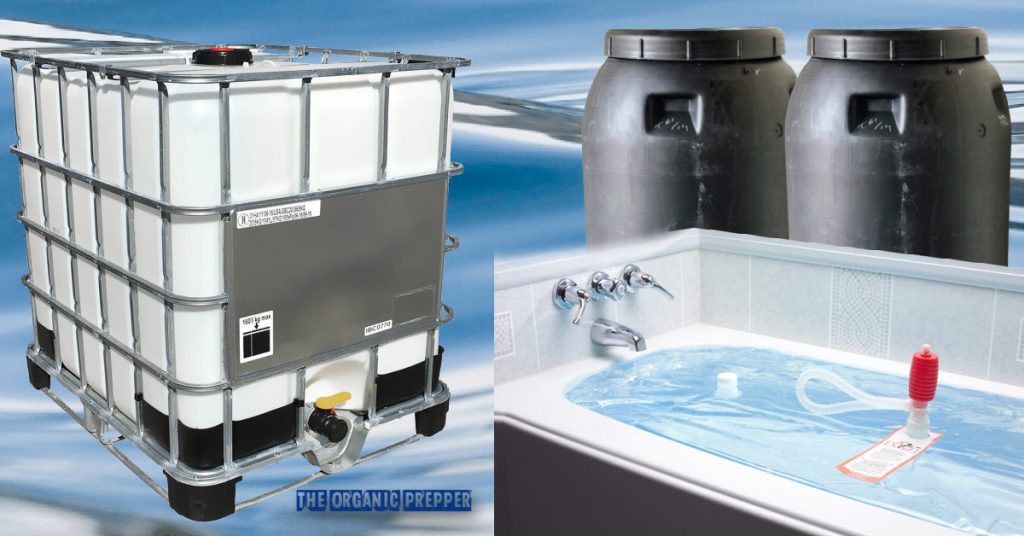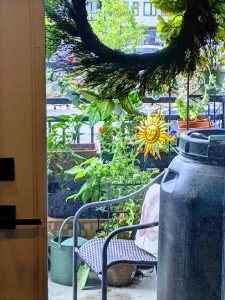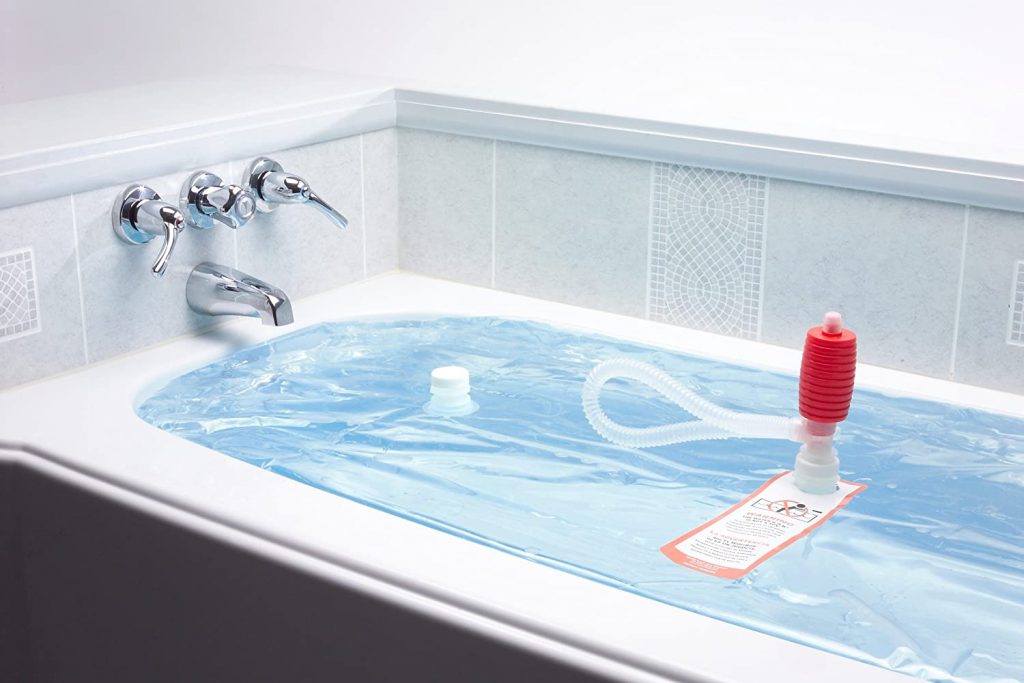by Daisy Luther, The Organic Prepper:

One of the most common questions I get from folks who don’t live on a large property in a rural area is how to store a lot of water for a long-term emergency. First, let me give you a harsh reality check. If the crisis goes on long enough you will run out of stored water. So this is only a portion of your water preparedness plan. You also need to know how to acquire and filter more water. But that’s beyond the purview of this article.
Let’s talk about how to store a lot of water in a smaller space and how much water you need.
TRUTH LIVES on at https://sgtreport.tv/
How much water do you need for emergencies?
There’s a “rule” that preppers often quote that suggests you need one gallon of water per person and pet per day in the event of emergencies. That is a decent basic guideline but there are other variables to consider too. Some pets, for example, certainly aren’t going to require an entire gallon of water while larger livestock will need more than a gallon on hot days.
This amount doesn’t take into consideration things like the climate, whether people will be doing strenuous work, or if certain health conditions are in play. It also doesn’t cover the water you’d need for personal hygiene, sanitation, or your garden. The best way to calculate how much water you truly need is to go without running water for a weekend and jot down every drop you use from your stash.
For more information on calculating how much water you’ll need for emergencies, check out this article and this one.
How to store a lot of water
Below, find some options for storing a significant amount of water.
Water Barrels
 I live in an apartment building as of the writing of this article, and there isn’t a whole lot of extra space for water storage. I purchased a 65-gallon food-safe barrel for $15 from a lady on Facebook Marketplace. The barrel had initially held pickles long ago but she’d used it in her garden to collect rainwater for quite some time, so by the time it got to me, any residual pickle-y smell was long gone.
I live in an apartment building as of the writing of this article, and there isn’t a whole lot of extra space for water storage. I purchased a 65-gallon food-safe barrel for $15 from a lady on Facebook Marketplace. The barrel had initially held pickles long ago but she’d used it in her garden to collect rainwater for quite some time, so by the time it got to me, any residual pickle-y smell was long gone.
I keep it on my patio and opted for a color that blends in with the brick of my building. Nobody has paid any attention to it in the year and a half I’ve had it. The bonus to something like this is that I have a second top for it with a screen that I could use for water collection if things went really sideways.
To wash a barrel like this, if you don’t have a hose, visit a DIY car wash and bring your own dish soap. To fill it, I simply filled a 3-gallon container in my kitchen and walked it out until the barrel was full.
Mine doesn’t have any bells and whistles. I’d need to dip water out with a clean ladle if it came to using this for consumption. But if you have the money to do so, you can get “upcycled” water barrels on Amazon that have spigots and water catchment conversion kits delivered to your door within a couple of days. You can also pick up rain barrels at many local hardware stores. Just make sure it comes with a solid lid you can put on for storage and you’ll be all set.
Please note that water weighs 8.3 pounds per gallon. That means that my filled barrel weighs almost 540 pounds, not including the weight of the barrel. Be sure that the place you plan to keep your barrel can withstand the weight.
Bathtub water bladders
Another place you can store water in a smaller space is the bathtub. I suggest a Water Bob (100 gallons) or an Aqua Pod (65 gallons) for this. These are BPA-free plastic bladders that attach to the faucet of your tub to fill with water. Once the bladder is full, then you detach it from the faucet and put on the cap. This closed container keeps your water safe and free from contamination.
Obviously, you need to know the emergency is about to happen to use a bathtub water container. These are great if a storm is blowing up or some other type of crisis is imminent.
IBC Totes
Another option, if you have the space and an area that can hold around 2500 pounds, is a food-grade IBC Tote. These are large, 275-gallon plastic cubes that come in a metal cage for added support. They’re not cheap but you can sometimes find a reconditioned one. I kept a couple of these when I lived in California. The unit itself weighs around 150 pounds.
Read More @ TheOrganicPrepper.ca




